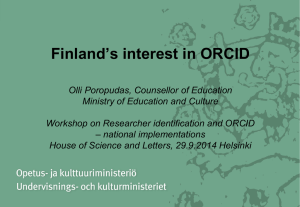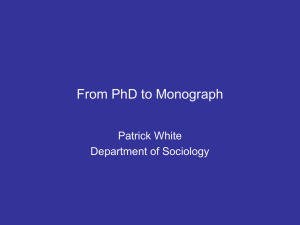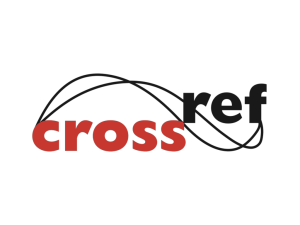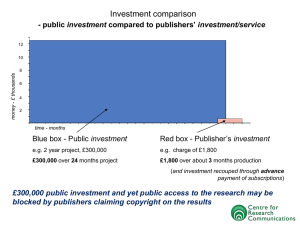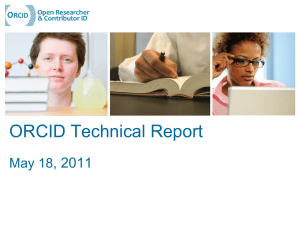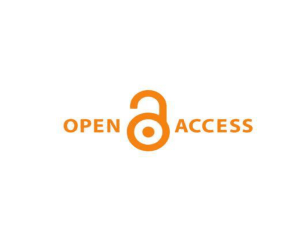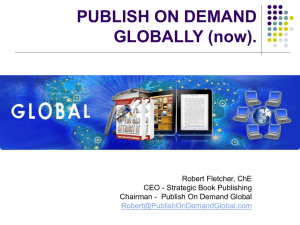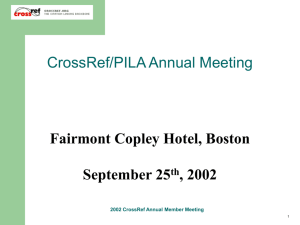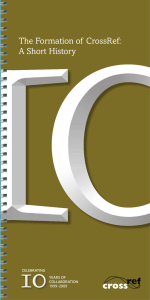Chicago Collaborative Minutes November 2015corrected
advertisement
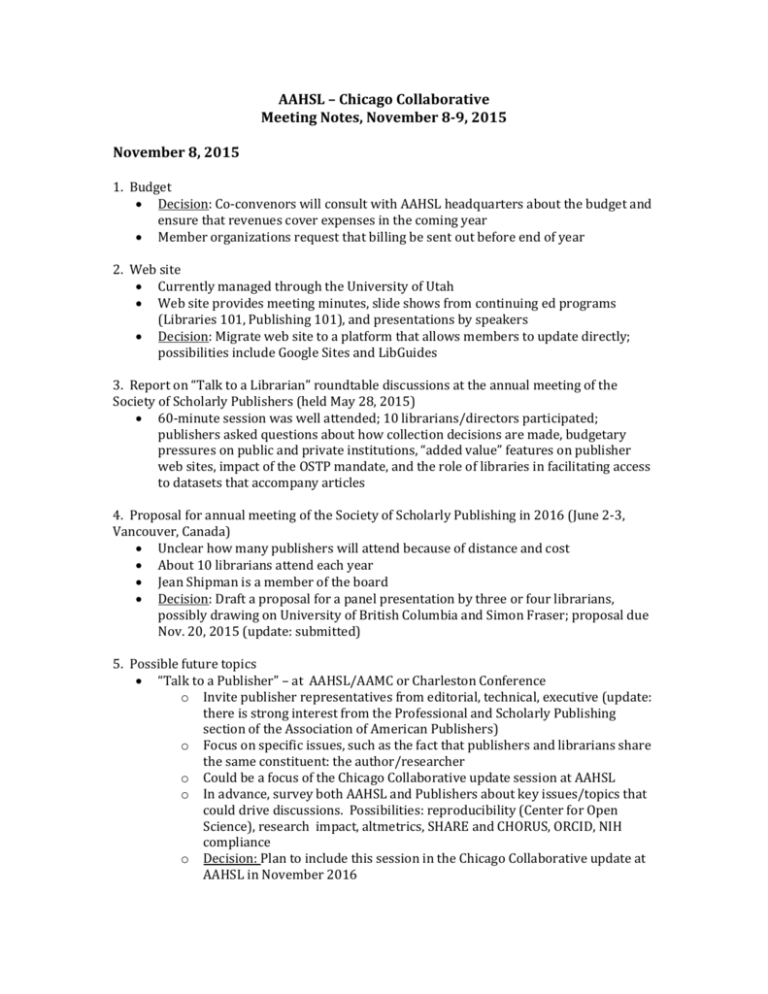
AAHSL – Chicago Collaborative Meeting Notes, November 8-9, 2015 November 8, 2015 1. Budget Decision: Co-convenors will consult with AAHSL headquarters about the budget and ensure that revenues cover expenses in the coming year Member organizations request that billing be sent out before end of year 2. Web site Currently managed through the University of Utah Web site provides meeting minutes, slide shows from continuing ed programs (Libraries 101, Publishing 101), and presentations by speakers Decision: Migrate web site to a platform that allows members to update directly; possibilities include Google Sites and LibGuides 3. Report on “Talk to a Librarian” roundtable discussions at the annual meeting of the Society of Scholarly Publishers (held May 28, 2015) 60-minute session was well attended; 10 librarians/directors participated; publishers asked questions about how collection decisions are made, budgetary pressures on public and private institutions, “added value” features on publisher web sites, impact of the OSTP mandate, and the role of libraries in facilitating access to datasets that accompany articles 4. Proposal for annual meeting of the Society of Scholarly Publishing in 2016 (June 2-3, Vancouver, Canada) Unclear how many publishers will attend because of distance and cost About 10 librarians attend each year Jean Shipman is a member of the board Decision: Draft a proposal for a panel presentation by three or four librarians, possibly drawing on University of British Columbia and Simon Fraser; proposal due Nov. 20, 2015 (update: submitted) 5. Possible future topics “Talk to a Publisher” – at AAHSL/AAMC or Charleston Conference o Invite publisher representatives from editorial, technical, executive (update: there is strong interest from the Professional and Scholarly Publishing section of the Association of American Publishers) o Focus on specific issues, such as the fact that publishers and librarians share the same constituent: the author/researcher o Could be a focus of the Chicago Collaborative update session at AAHSL o In advance, survey both AAHSL and Publishers about key issues/topics that could drive discussions. Possibilities: reproducibility (Center for Open Science), research impact, altmetrics, SHARE and CHORUS, ORCID, NIH compliance o Decision: Plan to include this session in the Chicago Collaborative update at AAHSL in November 2016 Develop an “Author 101” session to be delivered at AAMC (target the MD/PhD group); could develop online modules o Outcomes for AAHSL – take a toolkit back to your institution Speakers on data sharing (see section 6 below) 5. Author contributorship badges (see: https://www.mozillascience.org/contributorshipbadges-a-new-project) Digital badges are being piloted by Biomed Central and PLoS to give individuals credit for their specific contributions in the publication process (e.g., writing initial draft, computation, analysis) Collaboration among Mozilla Science Lab, Biomed Central, Public Library of Science, the Wellcome Trust, Digital Science, and ORCID 6. Data sharing discussion Culture is important – there is significant researcher resistance to sharing data openly Research may include extensive data collection and different parts of that data may be associated with different grants Most publishers don’t store their background data Should follow the Research Data Alliance; Eefke Smit (STM) is involved; standards are being developed Center for Open Science – could be speaker Academic libraries involved in data management/sharing/curation Data questions around paper lab notebooks vs. electronic lab notebooks NIH requirements – see Nature Jan 27, 2014 (http://www.nature.com/news/policynih-plans-to-enhance-reproducibility-1.14586) Decision: Consider inviting speakers to talk on this topic in the future 7. Plans for next meeting Washington, DC, is best location for publisher members Decision: Meet before the next STM meeting, April 24-25, 2016; will seek conference spaces in one of our member organization’s buildings. 8. Speaker: Heather Pierce, Science Policy and Regulatory Counsel, AAMC Pierce works on any laws/regulations/guidance related to research; manages conflicts of interest Presented on “Convey,” an online platform developed by the AAMC at IOM’s request to help physician researchers document financial disclosures in one place (see: https://www.aamc.org/initiatives/research/coi/404084/conveydisclosuredatabase.html) Convey stores disclosures and customizes for various vendors, journals, organizations Subscription model – organizations that tailor the system and extract information pay for the system; individuals do not pay ORCID could be used to tie systems together (e.g., an institution could require that ORCIDs be used as the disclosure identifier for all of their affiliates’ disclosures) Aiming to launch Jan or Feb 2016 November 9, 2015 Next meeting, tentative April 24-25, 2016, Washington, DC, at a member organization’s building Sunday, 5-6:30, dinner at 7; Monday 8 am -2 or 3 pm Action: Send email to group to confirm dates Four speakers were invited to provide updates on how they are facilitating open access to research outputs in response to the 2013 directive from the Office of Science and Technology Policy. 1. CHORUS, John Tagler See: http://www.chorusaccess.org/ CHORUS is a nonprofit 501c3 and leverages existing publishing infrastructure Publishers’ response to OSTP mandate From their web site: “To initiate CHORUS’ services, authors simply have to identify their funding sources when submitting a paper for publication with a participating publisher. That action tags the article with CrossRef’s FundRef service, triggering free public access of the best available version (either the final, published version or the author’s accepted manuscript), either immediately on publication or after a designated embargo period.” Automated system to earmark “green” articles and point user to publishers’ sites – either version of record or final published version 38 members, 33 publishers (most of the majors); 60% are societies that self-publish, 20% societies that use a publishing partner, 20% are commercial publishers Contracts with DOE, Smithsonian (humanities/social science content), NIST; active discussions with 5-10 other US federal agencies In sync with each OSTP requirement Search interface is built solely to find a specific article, not for discovery Articles published by members are monitored by APIs; Link to govt agency reports, institutional repositories, publisher output 2. SHARE – Judy Ruttenberg See web site: http://www.arl.org/focus-areas/shared-access-research-ecosystemshare#.VlKSl2SrQ4Y ARL, AAU (Amer. Assn. of Universities), APLU (Assoc. of Public Land-Grant Universities), Center of Open Science (tech partner, open source development); IMLS and Sloan (funding) From web site: “SHARE is a higher education initiative whose mission is to maximize research impact by making a comprehensive inventory of research widely accessible, discoverable, and reusable. To fulfill this mission SHARE is building a free, open data set about research and scholarly activities across their life cycle.” CrossRef was an early partner SHARE Joint Working Group – 60 members, wide range of organizations Goals: expand number of providers, enhance metadata from existing providers Benefit – notification of an “open” release, could then apply metadata to connect various outputs Manage research outputs (figshare, dataverse, mendeley, dmptool, evernote, dropbox, github, etc.) and notify that they are publicly available 3. CrossRef (crossref.org) – Patricia Feeney Since 2000, ~6000 members (publishers, including govt); nonprofit Collecting more metadata beyond DOIs 2013, launched FundRef (CrossRef Funding Metadata) From web site: “FundRef provides a standard way to report funding sources for published scholarly research. Publishers deposit funding information from articles and other content using a standard taxonomy of funder names. This funding data is then made publicly available through CrossRef's search interfaces and APIs for funders and other interested parties to analyze.” See more at: http://www.crossref.org/fundref/index.html FundRef registry (~11,500 funder names) Updated monthly Publisher sends funder data to CrossRef; creates a link tween article, funder, publisher – can be linked to the author if they include ORCID FundRef search: by funder name CrossRef Metadata search: by award number, by DOI, by ORCID 4. Ringgold – Christine Orr See web site: http://www.ringgold.com/ Authority control for institutions (covers all roles: licensees, intermediaries, funders; all sectors .edu, .gov) For-profit company, founded 2005 “Identify” database Benefits: disambiguate, identify metadata (locations, alternative names, URL/domain), identify hierarchies within an institution (relational authority) Has been broad adoption in scholarly community (ORCID, 50+ publishers) Working with ORCID to join people and places (Ringgold mapped institutions to the options in the ORCID dropdown box) 5. ORCID – Alice Meadows See: orcid.org Persistent identifiers to disambiguate names and connect people, places, things Connected with CrossRef from the beginning Auto update – if the ORCID id is added, then records are automatically updated 1.7M researchers are registered with about 4.7M records 14% are using it in grant apps Six funders in Europe and Australia are requiring ORCIDs NIH created a short video on ORCID – how can they be used Premium membership to ORCID provides alerts to institutions about updates

